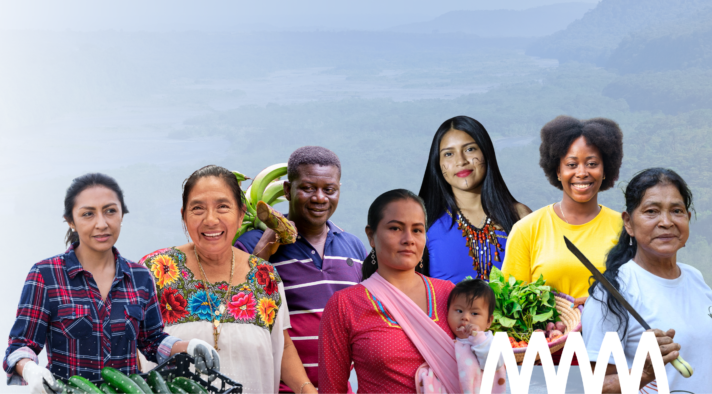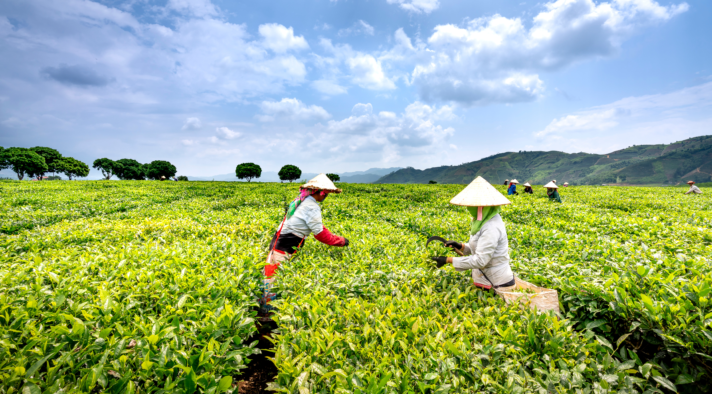Monday, March 14th – Dear members, colleagues, and partners of the global Regions4 community,
Two weeks ago we saw the release of the International Panel on Climate Change’s second part of the Sixth Assessment Report on the impacts and consequences of our rapidly changing climate, which focuses on vulnerability and adaptation.
The report confirms that the global climate crisis continues to affect our world deeply: around 40% of the world’s population is « highly vulnerable » to the impacts of climate change, and our most vulnerable communities are first impacted.
We are not equally hit. But we are all hit. Many regions across the world are the first to be vulnerable to climate change impacts, including flooding, intense weather, and coastline erosion. However, some, particularly small nations, and those in the Global South, lack the financial and technical resources to take the action needed to adapt.
In addition, the extent and magnitude of impacts to ecosystems are larger than estimated in previous assessments. Climate change has caused substantial damages, and increasingly irreversible losses, in terrestrial, freshwater and coastal, and open ocean marine ecosystems. The IPCC report confirms that weather and climate extremes have led to some irreversible impacts, as natural and human systems are pushed beyond their ability to adapt.
More than ever there is a need to cut emissions drastically and significantly boost actions and spending on adaptation, notably for this funding to reach the local and regional level from a climate-justice approach.Natalia Uribe Pando, Regions4 Secretary General
Adaptation actions have increased globally but are unequally distributed, and the adaptation gap is set to grow. The report underlines that “most observed adaptation is fragmented, small in scale, incremental, sector-specific, designed to respond to current impacts and near-term risks, focused on planning rather than implementation”.
The report warns of the risk of quick fix mal-adaptation solutions and encourages “the ever-growing need for a deliberate shift from primarily technological adaptation strategies to those that additionally incorporate behavioural and institutional changes, adaptation finance, equity and environmental justice, and that align policy with global sustainability goals”.
The IPCC report is a call for more political commitment, persistence, and consistent action across scales of government, and upfront mobilisation of human and financial capital is key, even when the benefits are not immediately visible.Natalia Uribe Pando, Regions4 Secretary General
Regions are at the forefront of climate action, and we recognise the need to take even more urgent action in face of the global crisis.
At COP26 we showcased how regional governments have concretely developed, implemented and raised the ambitions of their adaptation plans and resilient climate actions, through innovative solutions by strengthening food security and sustainable agriculture; ensuring water availability and regulation; restoring coastal areas and protecting ecosystems; integrating the urban and rural realities; advancing towards renewable energy models; and developing education schemes to increase capacity‐building, among others.
The Regions4-led initiative RegionsAdapt gathers a community of 77 regional governments working to improve the resilience on their territories, while reinforcing international cooperation mechanisms and region-to-region support. As part of the global campaign Race To Resilience, we will also work to better measure our adaptation actions, and to co-create a collective pathway to 2030.
We encourage all international actors and other regional governments to join us, exchange, learn, gain knowledge to act, and join the Race to Resilience, and our RegionsAdapt initiative to make sure we answer the call from the global scientific community to act on the “rapidly narrowing window of opportunity to enable climate resilient development.”Natalia Uribe Pando, Regions4 Secretary General
We have embarked on a green transition that will foster the economic recovery of our territories. We continue to research and develop measures that will reduce the vulnerability of our regions, while integrating nature-based-solutions with climate and energy, as well as social policies. We are working from a multi-level governance perspective with the 2030 Agenda as our roadmap, and a shared vision for a resilient future for people, nature, and planet.
We are part of the solution.
Further information
Raising ambitions on climate adaptation: lessons learnt and contributions of regional governments – Publication
COP26 takeaways – Article



